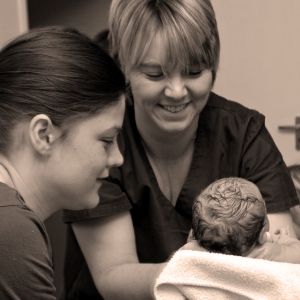 Not too long ago, I finished my third medical romance (in Afrikaans, under my pen name). Like the first two, the story centres around a midwife in private practice. She is asked to deliver the baby of a celebrity couple – at home. I wanted to call this book Vroedvrou vir die Sterre – Midwife to the Stars. My publisher accepted the book, but not the title. According to her, the term ‘vroedvrou’ (in English, ‘midwife’) is not very romantic. I accepted the change with good grace, acknowledging that she knows best about all things publishing and book sales, while I’m just a doula who knows about birth.
Not too long ago, I finished my third medical romance (in Afrikaans, under my pen name). Like the first two, the story centres around a midwife in private practice. She is asked to deliver the baby of a celebrity couple – at home. I wanted to call this book Vroedvrou vir die Sterre – Midwife to the Stars. My publisher accepted the book, but not the title. According to her, the term ‘vroedvrou’ (in English, ‘midwife’) is not very romantic. I accepted the change with good grace, acknowledging that she knows best about all things publishing and book sales, while I’m just a doula who knows about birth.
Still, if you ask me, being a midwife is a pretty romantic thing to do with your life. Oh sure, there are late nights, missed birthday parties and Christmases, ringing phones in the middle of the night. There’s blood and poop and other bodily fluids. There are (sometimes) screaming women  and disrespectful colleagues. But mostly, there is love.
and disrespectful colleagues. But mostly, there is love.
Think about it. What constitutes our very first experience of this world? Our primal experience of love? It is our birth, of course. Whose hands are the first to touch us, the first to convey welcome or abuse? The hands that deliver us. Those hands imprint upon our bodies and our souls what love and tenderness should feel like. Often, the very first voice we hear is that of the midwife or the doctor ‘catching’ us. Lucky is the baby delivered by a midwife’s gentle hands, placed with awe onto his mother’s chest, welcomed with the words: “Here’s your baby, look at what your love created, isn’t he beautiful?” In that moment, the midwife’s love births not just a baby, but a family. A mother. A father. A new soul.
 The word ‘midwife’ comes from the old English and means someone who is with woman. Sheila Kitzinger describes the role of the midwife beautifully in her book, Rediscovering Birth:
The word ‘midwife’ comes from the old English and means someone who is with woman. Sheila Kitzinger describes the role of the midwife beautifully in her book, Rediscovering Birth:
“In all cultures, the midwife’s place is on the threshold of life, where intense human emotions – fear, hope, longing, triumph and incredible physical power – enable a new human being to emerge. Her vocation is unique. The art of the midwife is understanding the relationship between psychological and physiological processes in childbirth. Rather than being the provider of a technical service to support a doctor, or someone who scuttles around getting ready for an obstetrician and clearing away after him, her skills lie at the point where the emotional and biological touch and interact. She is not a manager of labour and delivery. Rather, she is the opener of doors, the one who releases, the nurturer. She is the strong anchor when there is fear and pain; the skilled friend who is in tune with the rhythms of birth, the mountain tops and  chasms, the striving and the triumph.”
chasms, the striving and the triumph.”
Sounds romantic, doesn’t it? French obstetrician Michel Odent reminds us that, until recently, human mothers could not give birth without releasing a “complex cocktail of love hormones”. The most important of these hormones are oxytocin (the hormone of bonding), endorphins (the hormones of transcendence and bliss) and prolactin (the mothering hormone). He warns: “Today, in many countries, most women have babies without releasing these specific hormones. The questions must be raised in terms of civilization. This turning point occurs at the very time when several scientific disciplines suggest that the way human beings are born has long-term consequences, particularly in terms of sociability, aggressiveness or, in other words, ‘capacity to love’.” Midwives, in my opinion, are the ones most skilled at creating a space  in which love hormones can flow. They are an essential ingredient of the “cocktail of love hormones”. This is why women often have lifelong bonds with their midwives.
in which love hormones can flow. They are an essential ingredient of the “cocktail of love hormones”. This is why women often have lifelong bonds with their midwives.
Thank you to all the wonderful midwives of the world who embody love. Thank you, in particular, to the midwives who delivered my babies (Sue and Riana) and the babies of my doula clients (especially Heather, Esti, Erna, Margot and Cornel). A special thanks to Robyn Sheldon, author of The Mama Bamba Way. You have inspired me so deeply that I had to write three stories about your profession. You truly are my heroines. Happy Valentine’s Day! May the love you’ve given away so bountifully come back to you a thousand fold.